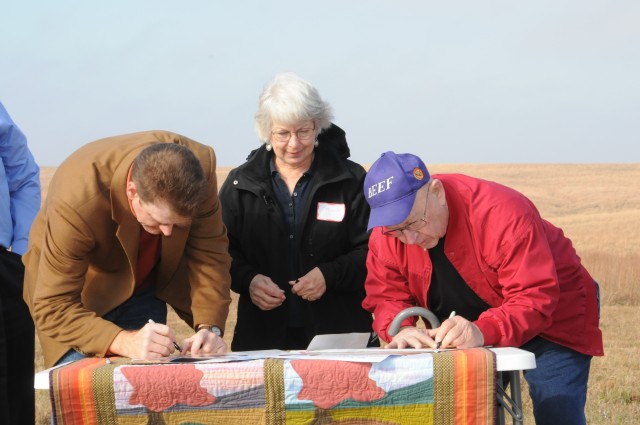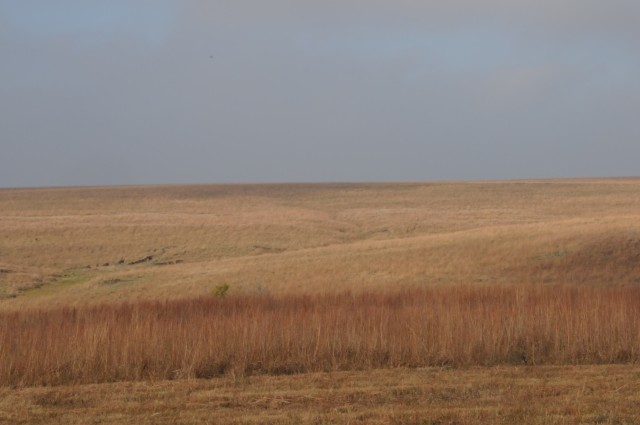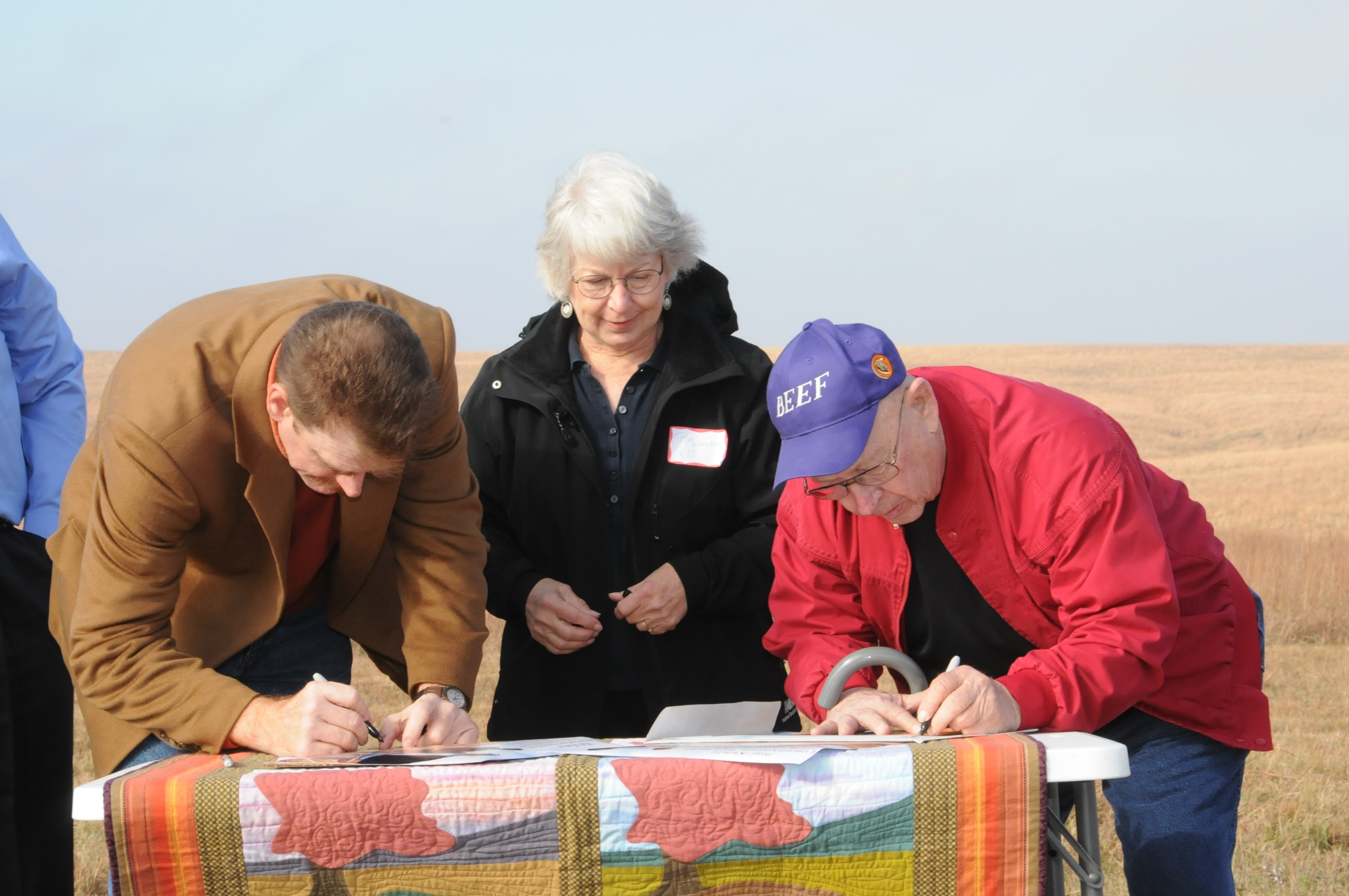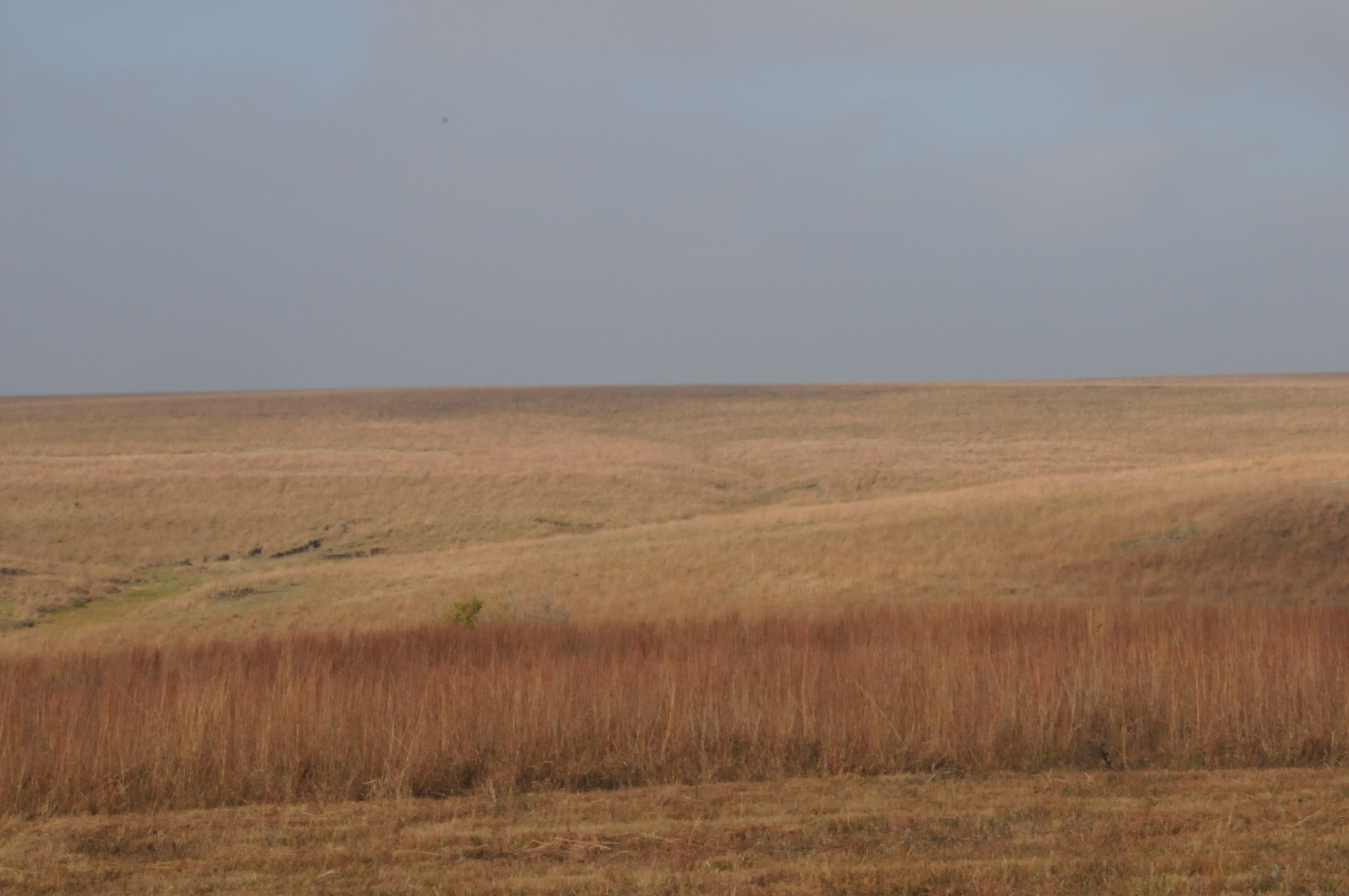By Bill Armstrong
Staff writer
FORT RILEY, Kan. Aca,!aEURc A small white tent, some tables and folding chairs were barely visible as they sat on the edge of an open field in a thick morning fog Oct. 18 just beyond Fort Riley's northeast boundary line. The temporary furnishings were set up for the signing of a historic land agreement that would protect the prairie land from commercial and residential development.
Hal Kunze, 82, is a lifelong Riley County resident. He owns the 630 acres covered in the conservation easement that is designed to protect this example of Kansas' northern Flint Hills with its native tallgrass prairie and soils.
Kunze said his grandfather was one of the last Riley County settlers to settle his 160 acres under the Homestead Act.
"People would much rather see cattle out here, I think, than a lot of houses," Kunze said.
Today, Kunze and his son, Darcy, raise Angus cattle on their land that parallels Fort Riley.
"I guess it will be here forever to raise cattle. We've got to keep our food supply going, and people won't have to look at a bunch of development coming up all over the place," Darcy Kunze said.
The Kunze Family agreed to sign a conservation easement that was implemented with the help of the Army Compatible Use Buffer program.
"The ACUB program provides Army funds to a non-governmental partner, in our case the Kansas Land Trust, to negotiate and enter into real estate agreements that prevent construction of residential developments on private land," said Craig Phillips, chief of the Conservation and Restoration Branch, Environmental Division, Directorate of Public Works. "These agreements are known as conservation easements. They are perpetual and become part of the deed."
Phillips said the easements transfer with any form of land transfer and will never expire.
Before signing the documents, Phillips told the approximately 30 attendees that the ACUB program helps protect Fort Riley from encroachment, which could adversely affect Fort Riley's mission.
"The things that the Army does make noise, dust, smoke and emit light. If that affects those land owners and those who develop around the installation, those people might start complaining. When they start complaining, our boundary essentially shrinks. We have to move away from that boundary with our training in order to be good neighbors, and that impacts our mission."
Another benefit of the agreement is the preservation of living space for wildlife.
"The Kunze tract is near other land parcels already protected within Fort Riley's ACUB priority areas," said Jeff Keating, Fort Riley biologist and ACUB program manager. "Clustering prairie parcels is more advantageous than acquiring isolated or widely spaced parcels because certain animals of high concern, such as the greater prairie-chicken, require thousands of acres of habitat to ensure long-term viability within that area."
The conservation easement was paid for with money from the U.S. Department of Agriculture Natural Resources Conservation Service's Farm and Ranchland Protection Program, the state of Kansas through the State Conservation Commission and Fort Riley's ACUB program, Keating added.
Also signing the easement agreement were Eric Banks, state conservationist with the USDA's Natural Resources Conservation Service, and Beverley Worster, president of the Kansas Land Trust board of directors.
Conservation easements are an effective tool for protecting the Flint Hills area from urban sprawl, Worster said.
"We all know that the Flint Hills is the Grand Canyon of our state and we have to let other people know how very important this is to the nation," she said. "I think these programs are saying to the people of Kansas that this Flint Hills land is really worth protecting."
Jason Fizell, Kansas Land Trust executive director, said the Kunze agreement is a heartening example of the Army, USDA and Kansas working together with a willing landowner and the Kansas Land Trust to protect the conservation values of a stunning piece of the Kansas Flint Hills.
"Protecting this landscape has the added benefit of improving everyone's interests," Fizell said. "The Army's training mission is protected; productive ranchland is preserved; and the landowner is compensated for doing the right thing. It's a win-win-win situation for all parties involved. Of course, it also benefits the general public, as this piece of the Flint Hills will remain forever preserved for future generations."
The Kansas Land Trust has completed 30 similar easements across Kansas to protect about 7,000 acres of land. The organization's leaders plan to double that amount within the next year.




Social Sharing